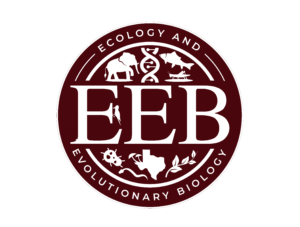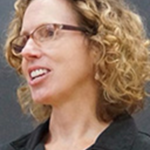 Lisa Naughton is a professor in the Geography Department at the University of Wisconsin-Madison. Her research interests concern the social dimensions of biodiversity conservation, with particular emphasis on protected areas and land use conflicts in the tropics. She has long-term field studies in Uganda, Ecuador and Peru, and has taught at Uganda, Chile and Ecuador as a Fulbright fellow. She served as PI (for UW Madison, WCS lead) on a USAID award focused on land tenure issues in tropical forest carbon payment programs. In addition to her work in the tropics, Dr. Naughton studies public attitudes toward wolf recovery in the upper Midwest states. She directed UW-Madison’s Land Tenure Center (2009-2013), Chaired the graduate program in Conservation Biology and Sustainable Development (2007-2010) and now Chairs the Geography Department. [Plenary talk abstract]
Lisa Naughton is a professor in the Geography Department at the University of Wisconsin-Madison. Her research interests concern the social dimensions of biodiversity conservation, with particular emphasis on protected areas and land use conflicts in the tropics. She has long-term field studies in Uganda, Ecuador and Peru, and has taught at Uganda, Chile and Ecuador as a Fulbright fellow. She served as PI (for UW Madison, WCS lead) on a USAID award focused on land tenure issues in tropical forest carbon payment programs. In addition to her work in the tropics, Dr. Naughton studies public attitudes toward wolf recovery in the upper Midwest states. She directed UW-Madison’s Land Tenure Center (2009-2013), Chaired the graduate program in Conservation Biology and Sustainable Development (2007-2010) and now Chairs the Geography Department. [Plenary talk abstract]
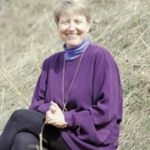 Jayne Belnap is a research ecologist with the U.S. Geological Service. Her work focuses on dryland and rangeland ecosystems, with a focus on how these lands can be managed sustainably while still used for grazing, recreation, and energy/mineral development and exploration. She was recognized by the Ecological Society of America as one of the most outstanding ecologists in the U.S. (2008), received the award for outstanding women in science award from the U.S. Department of the Interior (2010), and was elected a fellow of the Ecological Society of America (2015). [Plenary talk abstract]
Jayne Belnap is a research ecologist with the U.S. Geological Service. Her work focuses on dryland and rangeland ecosystems, with a focus on how these lands can be managed sustainably while still used for grazing, recreation, and energy/mineral development and exploration. She was recognized by the Ecological Society of America as one of the most outstanding ecologists in the U.S. (2008), received the award for outstanding women in science award from the U.S. Department of the Interior (2010), and was elected a fellow of the Ecological Society of America (2015). [Plenary talk abstract]
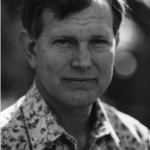 Peter Vitousek is a professor at Stanford University and a senior fellow at the Woods Institute for the Environment. His research interests include: evaluating the global cycles of nitrogen and phosphorus, and how they are altered by human activity; understanding how the interaction of land and culture contributed to the sustainability of Hawaiian agriculture and society before European contact; and making fertilizer applications more efficient and less environmentally damaging. He is a Fellow of the National Academy of Sciences and the American Academy of Arts and Sciences, and was awarded the 2010 Japan Prize. [Plenary talk abstract]
Peter Vitousek is a professor at Stanford University and a senior fellow at the Woods Institute for the Environment. His research interests include: evaluating the global cycles of nitrogen and phosphorus, and how they are altered by human activity; understanding how the interaction of land and culture contributed to the sustainability of Hawaiian agriculture and society before European contact; and making fertilizer applications more efficient and less environmentally damaging. He is a Fellow of the National Academy of Sciences and the American Academy of Arts and Sciences, and was awarded the 2010 Japan Prize. [Plenary talk abstract]
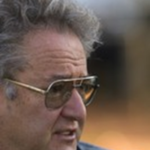 Stuart Pimm is the Doris Duke Chair of Conservation Ecology at the Nicholas School of the Environment at Duke University. His research covers the reasons why species become extinct, how fast they do so, global patterns of habitat loss and species extinction and, importantly, the management consequences of this research. He was awarded the Tyler Prize for Environmental Achievement (2010), the Dr. A.H. Heineken Prize for Environmental Sciences (2006), the Edward T. LaRoe III Memorial Award (2006), and the William Proctor Prize for Scientific Achievement (2007). [Plenary talk abstract]
Stuart Pimm is the Doris Duke Chair of Conservation Ecology at the Nicholas School of the Environment at Duke University. His research covers the reasons why species become extinct, how fast they do so, global patterns of habitat loss and species extinction and, importantly, the management consequences of this research. He was awarded the Tyler Prize for Environmental Achievement (2010), the Dr. A.H. Heineken Prize for Environmental Sciences (2006), the Edward T. LaRoe III Memorial Award (2006), and the William Proctor Prize for Scientific Achievement (2007). [Plenary talk abstract]
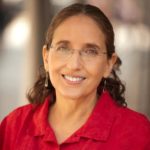 Ruth DeFries is a professor of ecology and sustainable development at Columbia University. Her research examines human transformation of the landscape and its consequences for climate, biogeochemical cycling, biodiversity, and other ecosystem services that make our planet habitable. She was elected as a member of the National Academy of Sciences (2006) and a member of the American Association for the Advancement of Sciences (2006), a recipient of the MacArthur “Genius” Fellowship (2007), an Aldo Leopold Leadership Program Fellow. [Plenary talk abstract]
Ruth DeFries is a professor of ecology and sustainable development at Columbia University. Her research examines human transformation of the landscape and its consequences for climate, biogeochemical cycling, biodiversity, and other ecosystem services that make our planet habitable. She was elected as a member of the National Academy of Sciences (2006) and a member of the American Association for the Advancement of Sciences (2006), a recipient of the MacArthur “Genius” Fellowship (2007), an Aldo Leopold Leadership Program Fellow. [Plenary talk abstract]

